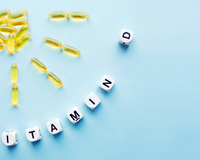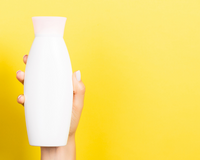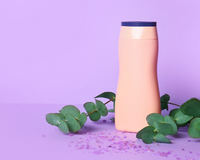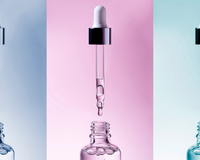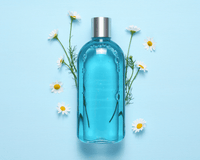Dealing with red, irritated skin and best skin care products for rosacea — a chronic condition characterized by excessively sensitive skin, visible blood vessels, and face pimples — frequently entails avoiding anything that can cause a flare-up. According to a specialist, "anything that creates a face wash can provoke a rosacea flare."
Ultra Gentle Daily Cleanser By Neutrogena
If you have sensitive skin, you know how important gentle washing is. For its extremely gentle components, both Zeichner endorse this foaming Neutrogena face cleanser. “The technology in this cleanser keeps the cleaning components from jeopardizing the outer layer's integrity,” says the manufacturer.
Because "the fewer ingredients, the better" is the rule for those with red, rosacea-prone skin, Lortscher advises this Free & Clear liquid cleanser, which is noncomedogenic (meaning it won't clog pores) and free of colours, perfumes, preservatives, and chemicals. Aveeno is another foamy cleanser recommended by Zeichner because it contains hot flashes, a soothing component found in chamomile that has been clinically proved to minimize redness and irritation. Other benefits include the absence of fragrance and hypoallergenic properties.
Best Skin Care Products For Rosacea
I personally recommend using an alcohol-free toner as someone who has reactive, red skin on a regular basis. Instead of eroding your pores like an astringent, this relaxing toner from Korean brand Swanicoco gently soothes and brightens your skin with fermented rice extract and vitamin C. It has a gel-like consistency and is extremely hydrating.
Serums That Can Be Used
Jaliman advises this serum from La Roche-Posay, which is specially made for best skin care products for rosacea, for a little amount of calming after waxing. “This serum for minimizing obvious redness works exactly what it promises. It's excellent because it's free of parabens, oils, and fragrances, making it ideal for sensitive skin. It contains a chemical known as ambophenol, which calms the skin. L'Occitane's serum, which contains the characteristic shea butter that "helps preserve and heal the outer skin layer," is another product Zeichner recommends for sensitive skin.
Moisturizer is also vital, and Jaliman recommends creams with niacinamide (vitamin B3), which she describes as "one of my favorite components for decreasing redness." This is good for redness and rash because it targets inflammation and weak blood vessel walls, rosacea. Thus probiotics can help calm your skin. Because it's mild and has probiotic technology, Jaliman suggests Clinique Redness Solutions cream. Lortscher offers Neutrogena's gel cream as a less expensive alternative: This hyaluronic acid-enhanced moisturizer is still fragrance-free and non-genic.
“You can try a stronger layer of moisturizer in the morning to help protect your skin, like pure petrolatum (Vaseline) or EltaMD's Intense Moisturizer,” Lortscher adds if your skin is very dry and sensitive.
Sun Shields Are A Type Of Sunscreen That Is Used To Protect The Skin
“I always prescribe a physical sunscreen with a high zinc oxide or titanium dioxide content. ” It is used to treat diaper rash. Another physical sunscreen that we and dermatologists suggest. Because it's colored, it'll help with any rashes you might have.
A more concentrated moisturizer may also assist with chronic redness. This mask from Avéne's Antirougeurs (or anti-redness) line contains "masked spring water and relaxing peptides," according to Zeichner.
And here's a Huxley Korean-beauty mask that helps to create shine while also healing my red skin (thanks to the prickly pear extract in it). According to Lortscher, “green tint bases can help disguise the pink appearance of irritated or washed-out skin,” which is why she recommends using green tinted primers or color-correcting fluids. Smashbox's redness-reducing peptides and antioxidants are found in this best-selling green liner. The Urban Decay color correcting liquid is one of our favorites since it mixes effectively without looking blotchy or cakey on the skin.
Rosacea And Its Treatment
Medical and laser therapies for Rosacea produce excellent outcomes. Treatment, on the other hand, has a progressive effect. As a result, both effort and patience are require on the part of the patient. Most importantly, because rosacea is a chronic and progressive illness, treatment should be coordinate by a dermatologist base on the symptoms and stage of the disease.
In rosacea, the most important aspect of skin care is to moisturize the skin while avoiding sun protection. And cosmetics that contain irritating chemicals. The skin that forms as a result of rosacea is dry and extremely sensitive. As a result, the chosen the best skin care products for rosacea must not disturb the skin's natural barrier function and must have elements that manage the enhance skin vascular circulation. The loss of the skin's barrier function causes skin symptoms such as burning, stinging, and itching. Which are common in rosacea. As a result, all skin care products should avoid disrupting the protective layer of oils and epidermal cells found on the skin's surface.
Rosacea patients should wash their faces with warm water and avoid using hot or cold water. They should use their fingertips to apply a liquid cleanser designed for sensitive skin. It is recommend that you dry your face with a gentle towel. Other cosmetics or pharmaceuticals should not be apply to the face immediately after bathing; instead, the skin should be allow to rest for 30 minutes.
Protect Yourself From The Sun
In the case of rosacea, special cleaners should be use; the best skin care products for rosacea with a pH comparable to that of natural leather should be utilizing (sodium sulfacetamide and those containing sulfur can be use). Apply your moisturizer and cosmetics 5-10 minutes after applying your meds after washing. To avoid skin irritation, avoid cleaning products that contain alcohol, menthol, peppermint, eucalyptus oil, or fragrances.
Sunscreens that protect against UVA and UVB should be broad-spectrum and highly effective. Zinc or titanium dioxide, which are non-chemical, physical sunscreens, should be preferring by patients. Regularly use protective creams with a protection factor of 15 or higher. As a result, products with a 50+ rating are ideal. 30 minutes before heading out in the sun, apply the product and repeat every 2 hours.
Between the hours of 10:00 and 16:00, the product should be utilizing.
Sunscreens do not protect rosacea patients against the burning, redness, and stinging caused by sun infrared radiation. As a result, it is critical to wear a hat, sunglasses, and seek shade.


